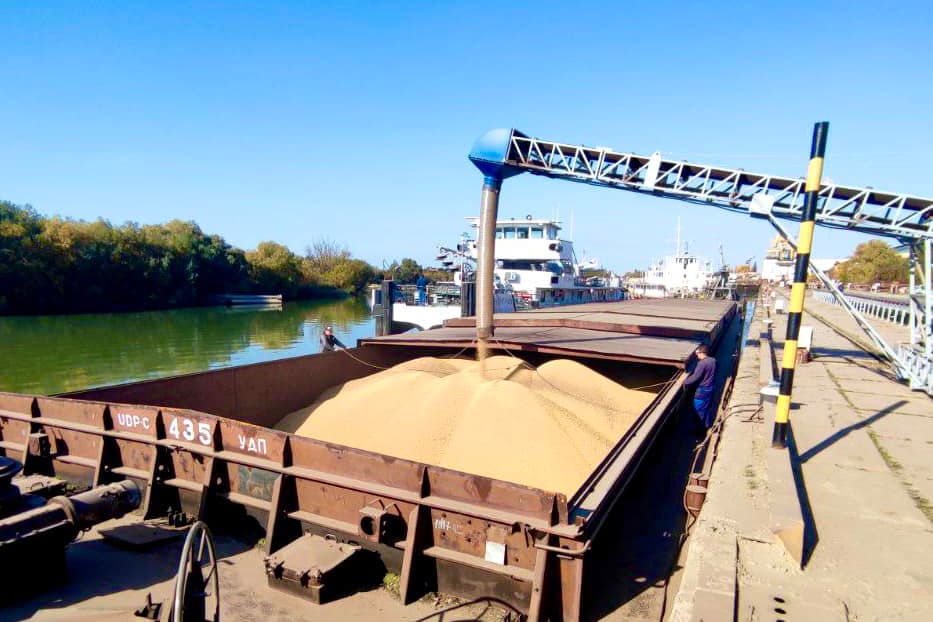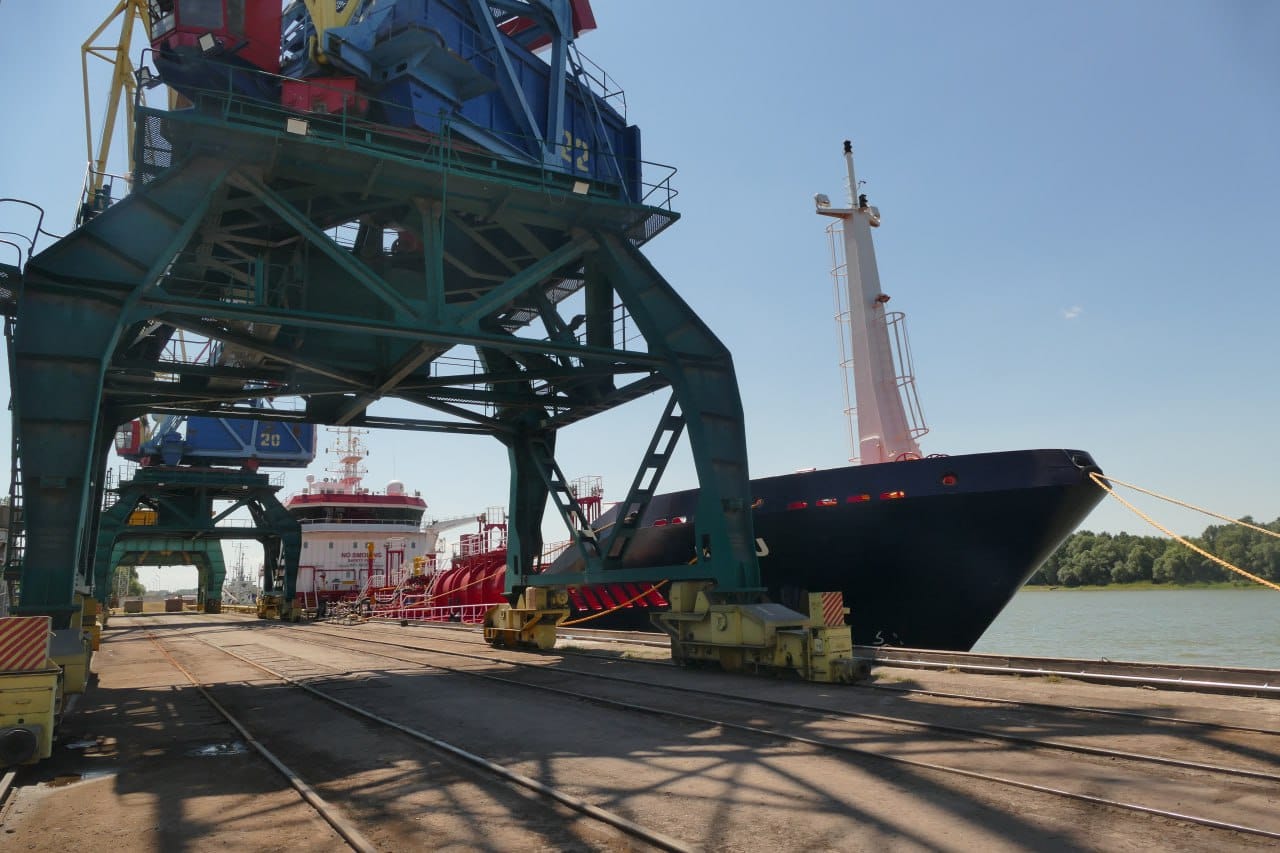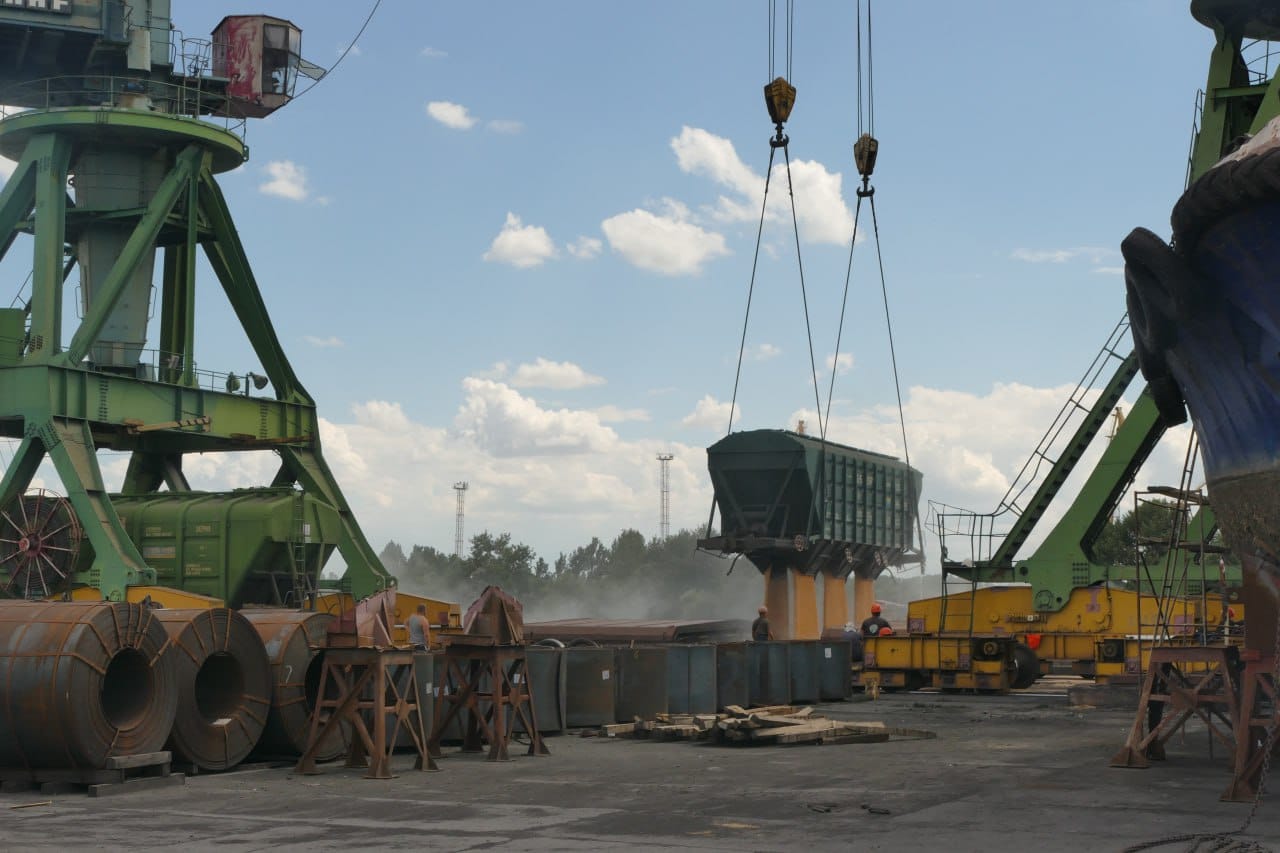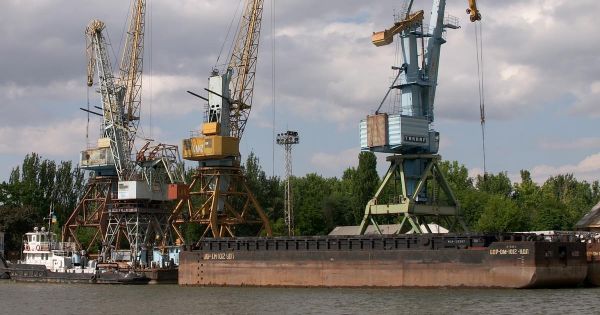Danube Ports Fight With “Cash Grain”. What Happens to Exports?
Yesterday, brokerage company Atria Brokers reported that the Ukrainian authorities have strengthened control over smuggling schemes in the Danube ports. As a result, it became impossible to load ships via opening customs declarations for exporters with the Form 2 (cash payment). This information was confirmed by other traders. We asked market participants what is happening in the Danube ports and how this situation affected traders, farmers and exports in general.
What kind of inspections are carried out in the Danube ports?
Representatives of the State Bureau of Investigation, the Security Service of Ukraine and the National Police are working now at all terminals in the Danube ports, says the owner of a logistics company operating in the Danube ports on condition of anonymity. They do not allow those exporters who work with suppliers for cash (by Form 2) to load ships. They are required to register for VAT. Those companies that work with suppliers via non-cash payment (Form 1) can ship their products.
However, one of the traders who works in Reni and Izmail told us on the condition of anonymity that even if the company works according to the Form 1 its export activity is still blocked, as the authorities do not issue new customs declarations. What's more, the authorities don't give orders even for those who have opened customs declarations, referring to the law enforcement agencies and the orders of the head of the Odesa Central Administrative Office, Oleg Kiper.
"We are required to provide tax invoices. But you understand that the agricultural producer has 15-45 days to register the tax invoice. And often he does it on the last day. That is, the goods are already exported, and the registration of tax invoices takes place later. And this is normal practice. For example, we paid today, and the farmer will register the tax invoices only at the end of November. Therefore, we cannot physically receive it and provide it to the inspection authorities," our source explains.
He clarifies that the Customs Code does not provide for the provision of tax invoices for registration of export cargo.
"If we want to overcome Form 2, there are other ways. For example, to allow such exporters to issue customs declarations once, and prohibit the next time until they provide a letter from the bank that the currency has entered Ukraine. It is simple. And today it turns out that agricultural export, which provides 60% of foreign exchange earnings, is limited," the trader notes.

How have inspections affected the work of exporters?
In Izmail, more than 40 vessels are currently unable to load due to these checks and the failure to issue the customs declarations. There are about 15 vessels in Reni. Of course, all this results in demurrage.
According to Atria Brokers freight broker Taras Panasyuk, depending on the class of the vessel and the route, demurrage per day can amount to 3-8 thousand dollars per vessel.
"Usually, demurrage amounts to one dollar per ton. Most of the ships entering Sulina have a deadweight of 6,000 tons. So, you can count the losses exporters are currently facing," says Taras Panasyuk.
We need to add to this the fact that some ships went through the Sulina Canal to the Danube for about 3 weeks. Because during about a week or so, it was completely closed due to bad weather conditions. The Bystre estuary was planned to be closed for about one week since approximately 20 October, but this plan could be cancelled, still not clear. So, there was a queue of up to 100 vessels, which was recently reported by the Ukrainian mass media.
"But, as everyone knows very well, when the weather in Sulina improves, Romanian pilots prioritize ships that go to Romanian ports. But ships to Ukrainian ports are forced to stand in another queue," says Taras Panasyuk.

In addition to the queues in the Danube, traders faced another problem. In order to close their contracts, they rushed to find farmers who would sell the goods according to Form 1. And what did the farmers do? They asked for a premium.
Agrarians can also be understood, as the prices of grain and oilseeds that we are seeing this year are forcing some people to give up. However, commodity broker and analyst at Atria Brokers Christina Serebryakova, pointed out that this situation is by no means in favour of small traders who appeared on the market during the war. They simply cannot bear such high costs.

Christina Serebryakova
Broker and analyst of Atria Brokers
"Minus $15 demurrage and minus $15 or more discount from the buyer for an extension that is not 8 days, as per GAFTA, and sometimes about 30 days. That's it, the trader can't fulfil the contract. Because he physically has no money left to overpay the farmers for Form 1. Thus, the fate of the seller is in the hands of the importers, and their ability for the dialogue."
Why is the cash market still operating in Ukraine?
Because the farmer is used to working for cash — to buy fertilizers, crop protection products and seeds for cash. Some of them do not pay land taxes. Therefore, traders are forced to buy grain from them via Form 2. But there are also advantages for the traders.
"In Ukraine, there have always been many who worked via Form 2. For example, you make 100,000 tons per month. In order to ship these 100,000 tons when you work via Form 2, you need to have financing for only 10,000 tons. Because they bring it to you on CPT and wait for you to pay. And when you work via Form 1, then you have to pay everything at once — VAT, the farmer, transshipment, etc. So, it turns out that Form 2 is like a credit line for our traders," says a representative of a logistics company operating in Danube ports.
He adds that he supports the transition of farmers and exporters to Form 1. This would significantly reduce competition. Because currently, it is difficult to compete with those companies that provide logistics and transshipment services using Form 2. And, taking into account the return of VAT, it is more profitable for the farmer to work via Form 1.
Then why are farmers in no hurry to switch to this form of payment? Christina Serebryakova says that they simply have no incentive. It is necessary for the authorities to induce them to do this with some preferences, then they simply will not have the thoughts to work via Form 2.

Under what conditions will it be comfortable to work in the Danube?
Since the beginning of the season, the profitability of work in the Danube has declined rapidly, many companies record losses, says Kyrylo Zlochevskyi, CEO of Bioenergy-Vinnytsia.

Kyrylo Zlochevskyi
CEO of Bioenergy-Vinnytsia
"The prices of corn and wheat have fallen sharply. The cost of sea logistics has risen. The final buyer pays for the goods only after unloading the ship in Constantia, or, in the case of delivery to Spain, Italy, after passing the Bosphorus. Now it takes more than a month for a ship to enter the Danube, load, and go to sea. And the queue for unloading in Constanta can take several additional weeks. And it is frozen funds."
Bioenergy-Vinnytsia is closely monitoring what is happening with sea logistics to the ports of Odesa. As Kyrylo Zlochevsky says, the active operation of the ports of Big Odesa will not only lead to an increase in exports but will also relieve the Danube ports.
Of course, force majeure, such as attacks on the infrastructure, can have an unpredictable impact.
And it is possible to work in the Danube provided that there are no queues, exporters will be able to plan delivery times and the water level will be stable, sums up the general director of Bioenergy-Vinnytsia.
Kostiantyn Tkachenko, Natalia Rodak, Latifundist.com


